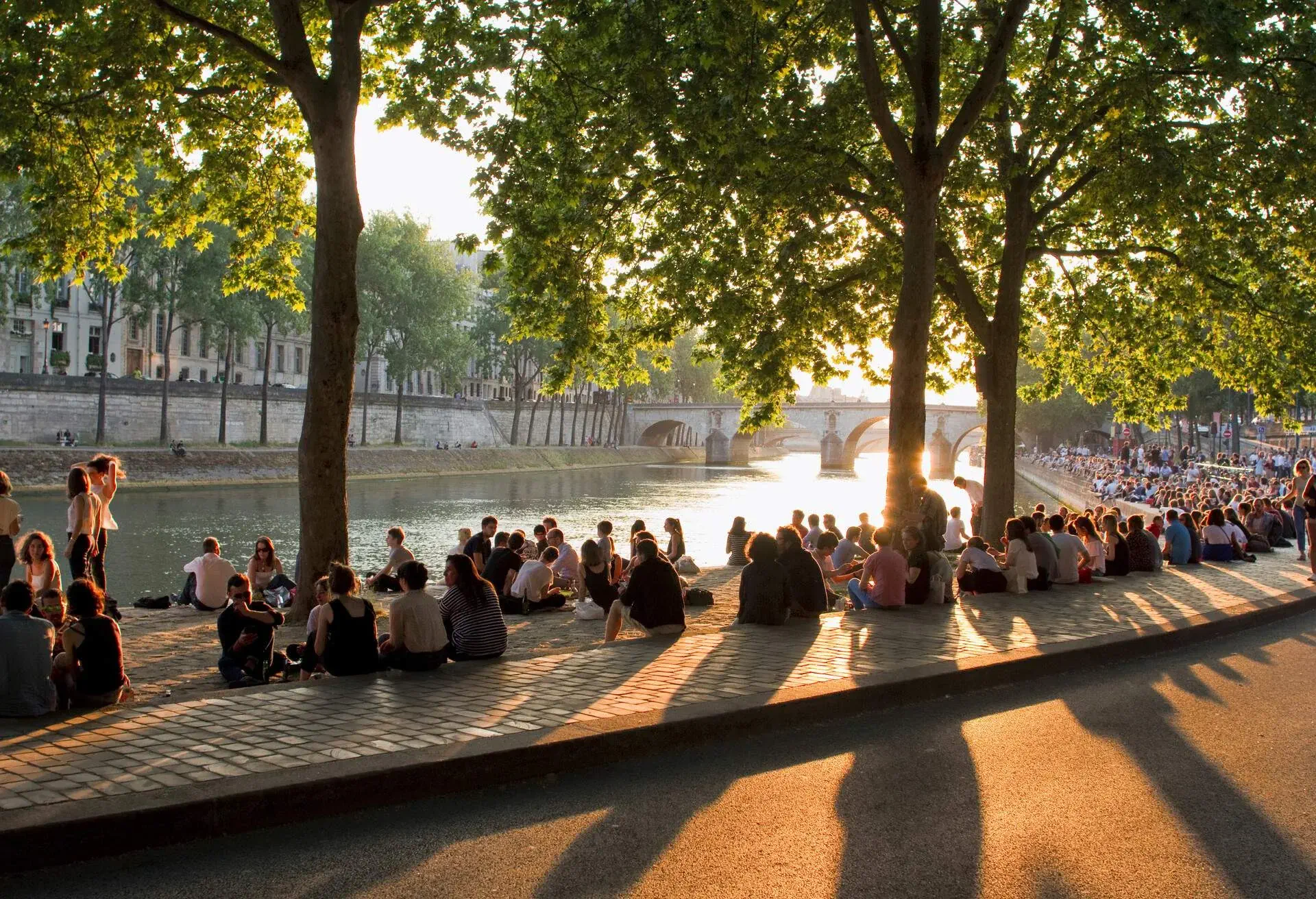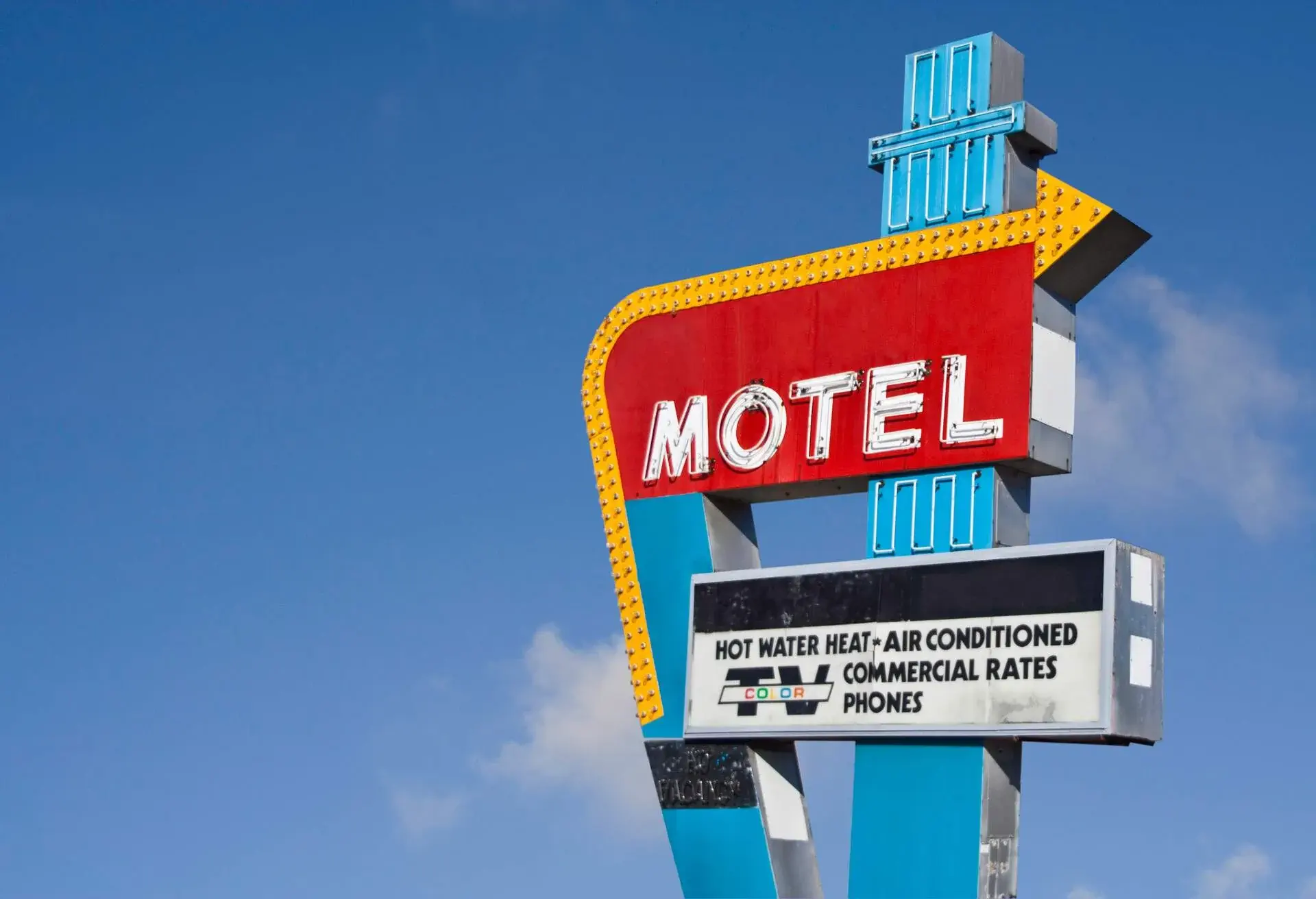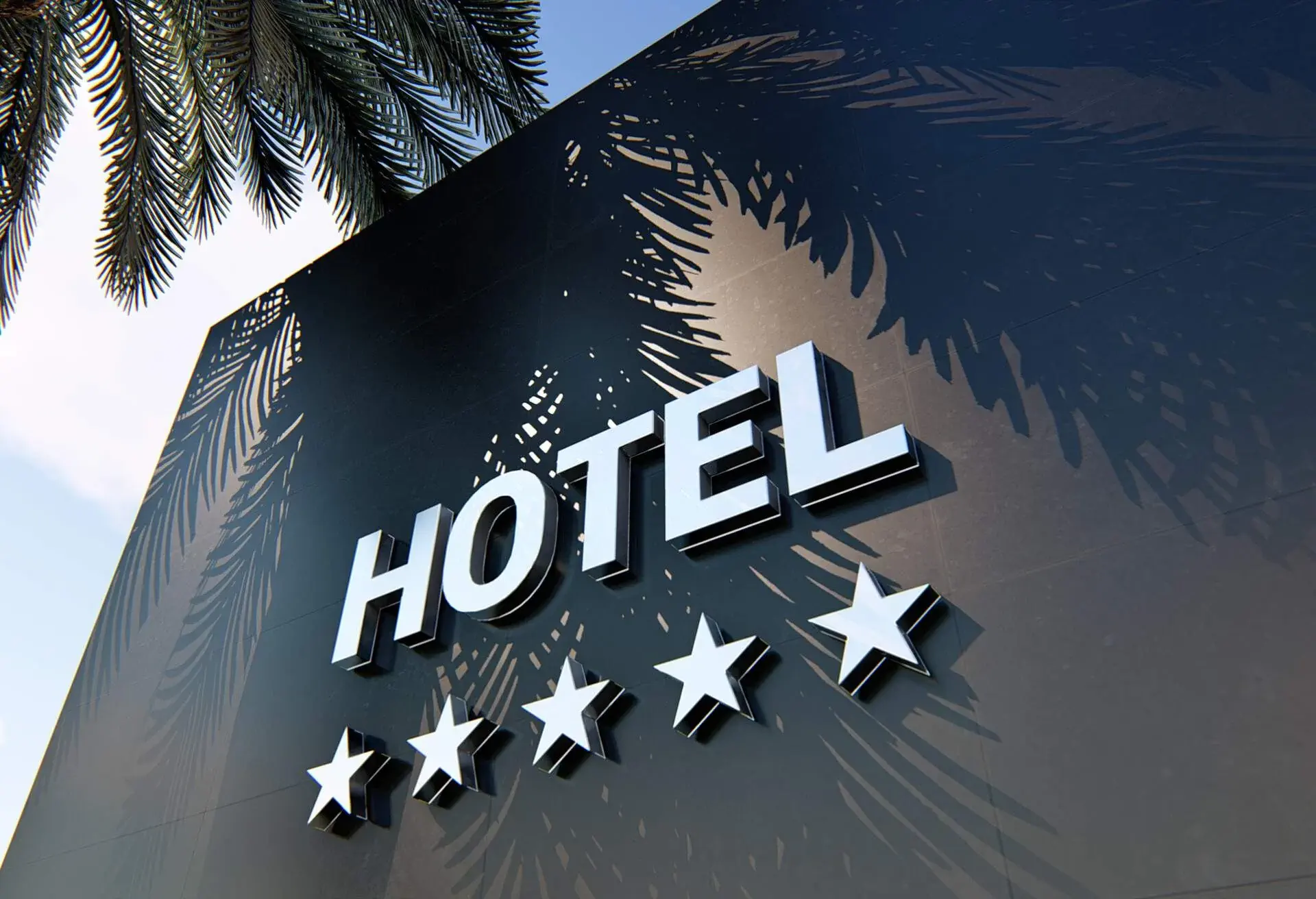Have you ever checked into a hotel and been caught off guard by a hefty resort fee? You’re not alone: It’s happened to the best of us. And what is a resort fee, anyway?
A hotel resort fee is an additional charge to cover the cost of various services and amenities that guests are entitled to during their stay. This can include access to amenities such as the spa, pool, or gym, services like WiFi, and extras like in-room coffee or bottled water.
When booking a hotel, you should be aware of and budget for resort fees to avoid an unpleasant surprise during check-in. To help you navigate the process, here’s a handy guide that breaks down exactly what fees include and how to avoid them altogether.
What is a resort fee, anyway?

When booking a room, it's important to keep in mind that the price you see advertised may not tell the whole story – I had to learn this one the hard way! Increasingly, hotels and resorts are charging a separate resort fee in addition to the room rate and taxes, which can be frustrating (if not infuriating) to unsuspecting guests.
The intent behind the resort fee is to cover the cost of providing certain amenities to guests, such as the pool or fitness center, Wi-Fi, or transportation services. While such extras certainly enhance the guest experience, they can often feel like an unwelcome surprise when you’re forced to pay extra for them. Nowadays, the average price of a resort fee is around $35, and it’s typically charged per night, not per stay. Which can quickly derail a travel budget.
Why do hotels charge a resort fee?
The hotel industry is a notoriously challenging one. With the rise of Airbnb and other alternative accommodations, hotel and resort owners have developed strategic ways to remain competitive and earn revenue. One way is to keep room rates appealing to potential guests and encouraging them to book without necessarily considering other fees.
What services and amenities do resort fees cover?

These fees go towards covering various services and amenities that are offered to enhance your hotel experience. This could include access to fitness centers, pools, and lounges, as well as free Wi-Fi and parking. Resort fees may also go towards providing complimentary breakfast, an airport shuttle service, and daily newspapers.
What is not included in a resort fee?
However, you can’t assume that a resort fee is the only extra cash you might have to part with on top of your room rate. Additional services such as spa treatments, room service and other meals, or valet parking usually incur extra charges. It's best to check with your hotel or resort ahead of time to understand what is and isn't covered by the resort fee.
What is a destination fee and what is a destination amenity fee?
While resort fees have become more commonplace, you might be confused by other terms that pop up during the booking process. Resort fee, destination fee, and destination amenity fee are all used interchangeably by hotels and resorts. Generally, resorts charge resort fees, while hotels charge destination fees or destination amenity fees for the same offerings. That said, the amount and variety of amenities and services on offer can vary significantly between properties.
In rare circumstances, you might see a resort fee and a destination fee charged at the same accommodation. This usually occurs at hotels and resorts in popular tourist destinations, including Hawaii, which capitalize on their amenities and sought-after location. It's important to carefully look for the fee breakdown when booking to understand exactly what you're paying for and why.
What hotels have the worst resort fees?

Most large hotel chains now charge guests some sort of resort fee. Some of the worst average fees (from $30 to $50+ per night) relative to room rates include:
- IHG Hotels
- Hilton
- Marriott
But these fees also depend heavily on location. Popular tourist cities like Miami, Las Vegas, and New York typically boast the highest average fees, with some luxury resorts in those destinations charging more than $100 per night in resort fees.
Finding hotel chains without resort fees
It’s almost impossible to find any major hotel and resort chains that does not charge resort fees these days. However, you can easily consider your options by using KAYAK’s price dropdown menu. On KAYAK you can choose whether to display:
- The total stay, including taxes and fees (which is the default)
- Nightly total, including taxes and fees
This format means no more surprises.
Using travel reward programs or hotel loyalty programs is another strategic way to book a hotel without paying resort fees. For example, Hyatt waives resort fees when guests book with World of Hyatt loyalty points, as does Hilton for its Hilton Honors members.
Check your favorite hotel’s loyalty program to avoid resort fees on your next trip, which can offer significant savings for your repeat business.
Other hidden fees travelers may encounter
Resort fees aren’t the only annoying extra expenses that travelers find themselves facing. In fine print underneath the base room rate, you may see more than one cost tacked onto the price. While resort fees are commonplace, so are other taxes and fees for certain destinations and services. Tourist taxes, early check-in fees, additional guest fees, and strict cancellation fees are all extra costs you may encounter when checking into a hotel.
Tourist tax

A tourist tax is an extra fee charged at your accommodation. It is typically imposed by the local, regional, or national government and can vary from country to country and even within different regions of a country. It is often assessed as a percentage of the total bill, or it can also be a set price per guest.
Tourist taxes are becoming increasingly popular to combat over-tourism and its impacts. Many European destinations have implemented such a tax for decades, but tourist taxes are also appearing in Asia and the Americas. Tourist taxes often support local infrastructure and other services that directly benefit tourists as well as local communities, such as street cleaning, waste management, and road maintenance.
High tourist taxes are increasingly common in popular destinations like Paris, Rome, Venice, Berlin, Amsterdam and Bali. Tourist tax can also apply to a whole country, such as Switzerland and Greece.
Early check-in/late check-out fees
Many hotels will charge an extra fee if you want to check in early or check out late. Depending on how early or how late, you may even be required to book additional nights, which can add up quickly and increase the total cost of your stay.
Additional guest fees

If you book for two people and show up with three, many hotels – especially those in Europe – will hit you with an additional guest fee. This can range from $20 up to $50 per night, depending on the hotel and its policy.
Cancellation fees
Most hotels will charge a fee or percentage of your booking if you cancel your reservation within a certain amount of time prior to your arrival date. Some hotels may even charge a fee if you change your reservation after it has been made, so it's important to read the fine print.
How to avoid resort fees: Tips for travelers

If you’re tired of being unpleasantly surprised by hidden resort fees, you can fortunately rely on some strategies to avoid or minimize these extra costs. A bit of research and savvy travel tips can go a long way in offering savings on your next stay.
- Research, research, research: Before booking your accommodation, make sure to check what fees the resort may charge. Most resorts will list their fees on their websites and you'll see these fees listed on KAYAK too.
- Ask questions: If you have any questions about resort fees, don't hesitate to ask the staff either before or during your stay.
- Look for special deals and packages: Many resorts may offer special discounts that can help reduce or eliminate resort fees altogether. There may also be packages that add additional services and amenities for a lower cost.
- Use filters when searching on booking sites: You can use filters when searching on KAYAK and choose to display the nightly total stay cost, including taxes and fees. This way, you’ll know exactly what you’ll be paying when you check in.
- Join a loyalty program: Many resorts offer loyalty programs that can help reduce or eliminate certain types of resort fees when you book with them. Repeat stays can offer a great way to save money on your next vacation and ensure that you don't get hit with hefty resort fees each time.
- Use a rewards program: Similar to a loyalty program, there are various travel reward programs, like those linked to certain credit cards. These can help you rack up points when booking flights and accommodation which can be redeemed at the property. Such programs sometimes come with eliminated resort fees, too.
- Negotiate in person: Don't be afraid to politely negotiate with staff at the resort. If you don’t plan on using some of the amenities, for example, ask for a reduced resort fee. In addition, if the pool or fitness center is closed or unavailable during your stay, use that as a bargaining chip for a reduced resort fee, or one that’s eliminated altogether. You might be surprised at how flexible staff can be when it comes to making guests happy, especially if you ask nicely.
In conclusion
Knowledge is key to saving your hard-earned money. By understanding why hotels charge resort fees and knowing how to avoid them, you can make an educated booking for your next getaway. While resort fees are the new normal, , take advantage of promotional packages, loyalty programs and special offers to avoid paying them whenever possible.
And don't forget when finding the perfect hotel on KAYAK, you can use price filters and features like Price Alerts to help you find deals quickly and easily – with no surprise fees.
FAQs
Although they seem interchangeable, hotels and resorts actually have distinct features that set them apart. While hotels offer limited amenities in the form of rooms and basic facilities, resorts provide a more comprehensive vacation experience with additional facilities such as spas, golf courses, water sports, and dining options.
Resorts cater to those seeking a relaxing all-in-one getaway, while hotels are suitable for travelers who require a comfortable place to stay without much extra. Resorts also often use an all-inclusive pricing feature.
While it may be frustrating to see this extra charge, it is usually non-negotiable. Some hotels may allow you to opt-out of certain amenities included in the fee, but they will not waive it entirely. Since the resort fee is typically disclosed at the time of booking, it is important to read the fine print.
Hotels or resorts may waive their fees under certain circumstances. Most commonly, hotels will waive resort fees for guests enrolled in their loyalty rewards program or those who have experienced inconveniences during their stay, such as a noisy room or a delay in check-in. It's important to note that it’s ultimately at the discretion of staff, but it never hurts to ask.
Navigating the world of pet-friendly accommodations can be tricky, especially when it comes to avoiding the added expense of pet fees. While each hotel may have their own set of rules and policies, there are a few tips that can help keep your wallet happy while traveling with your furry friend.
The best way is to search for hotels that do not charge pet fees or offer specials for pet owners using KAYAK’s pet-friendly hotel search feature. It's also important to remember to be a responsible pet owner and clean up after your pet to avoid incurring any additional charges. With a little bit of research and preparation, you can enjoy a memorable and cost-effective stay with your beloved pet.







